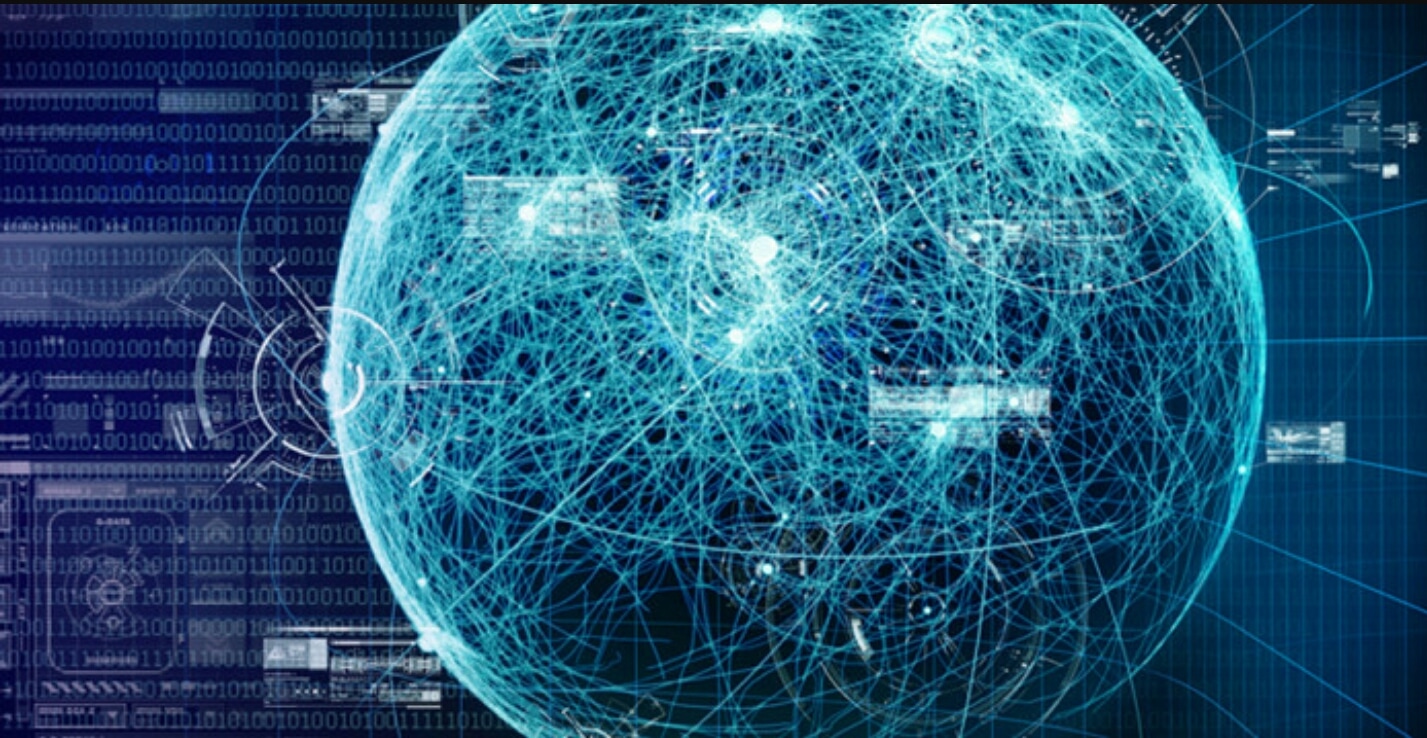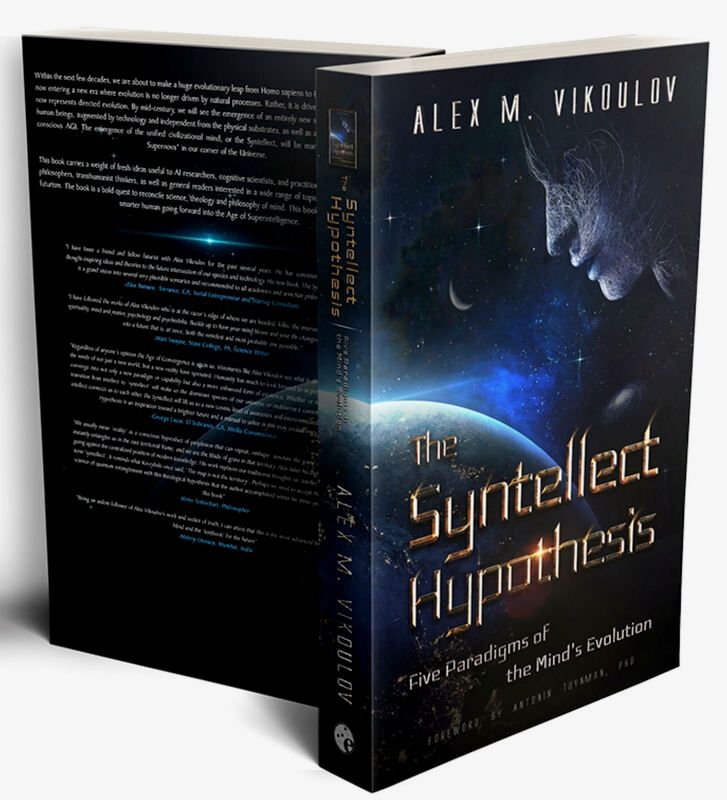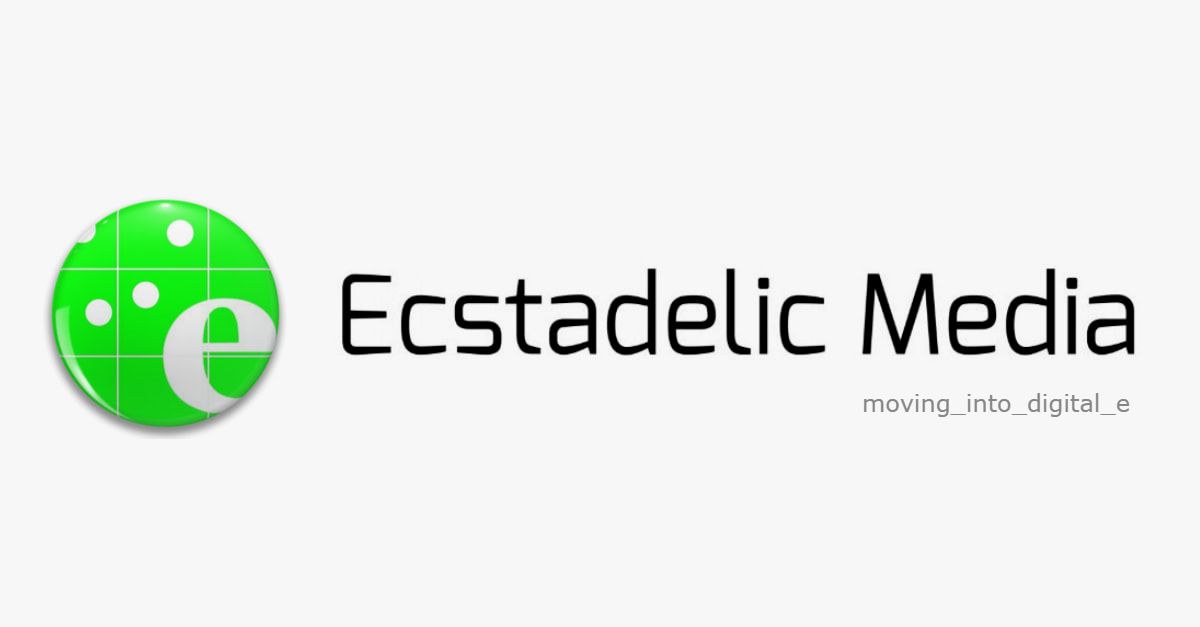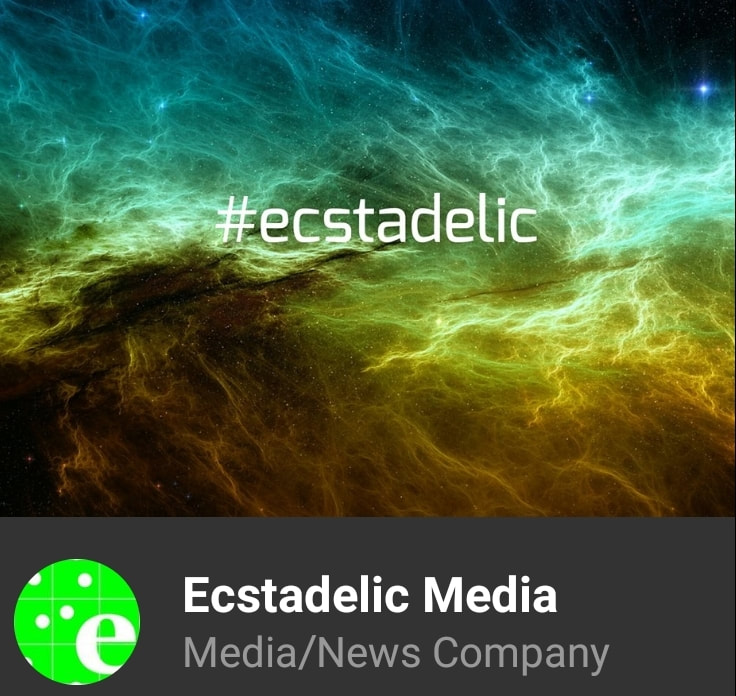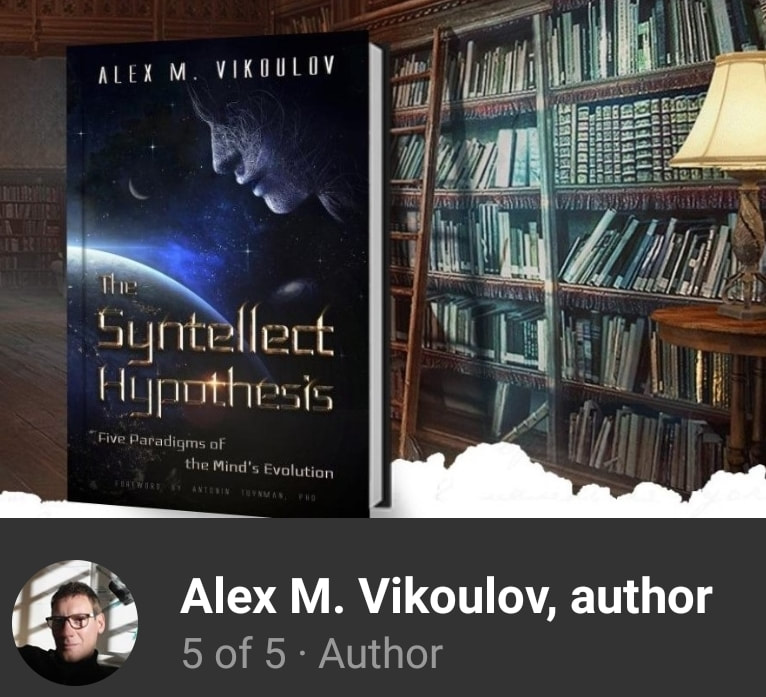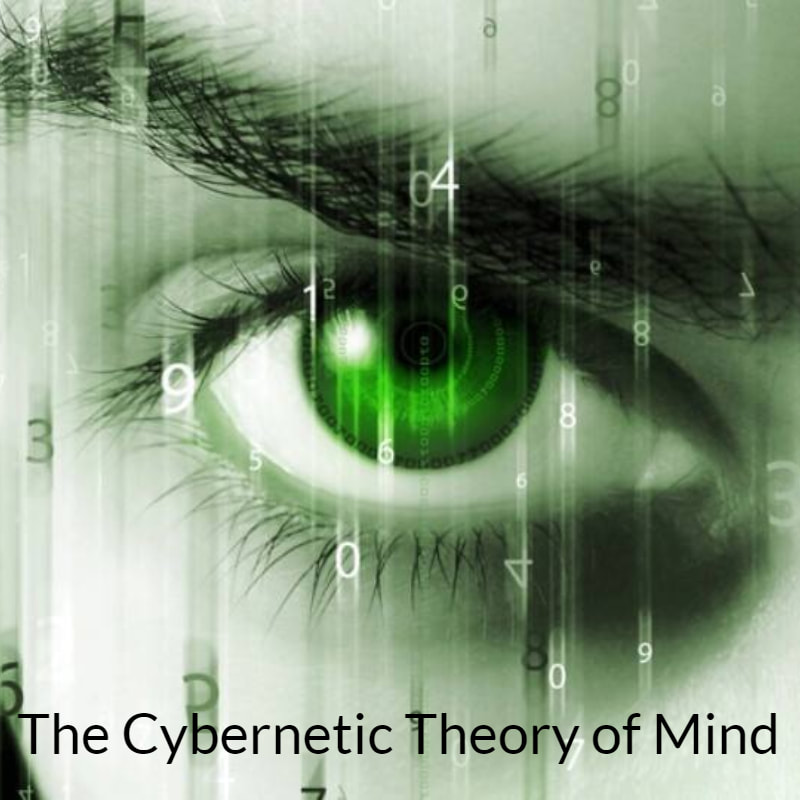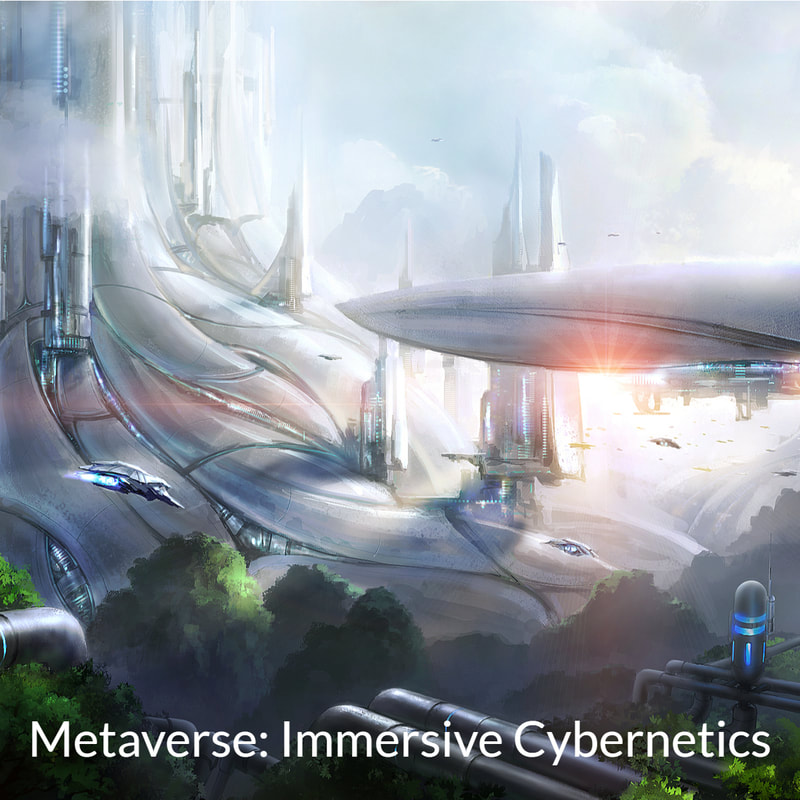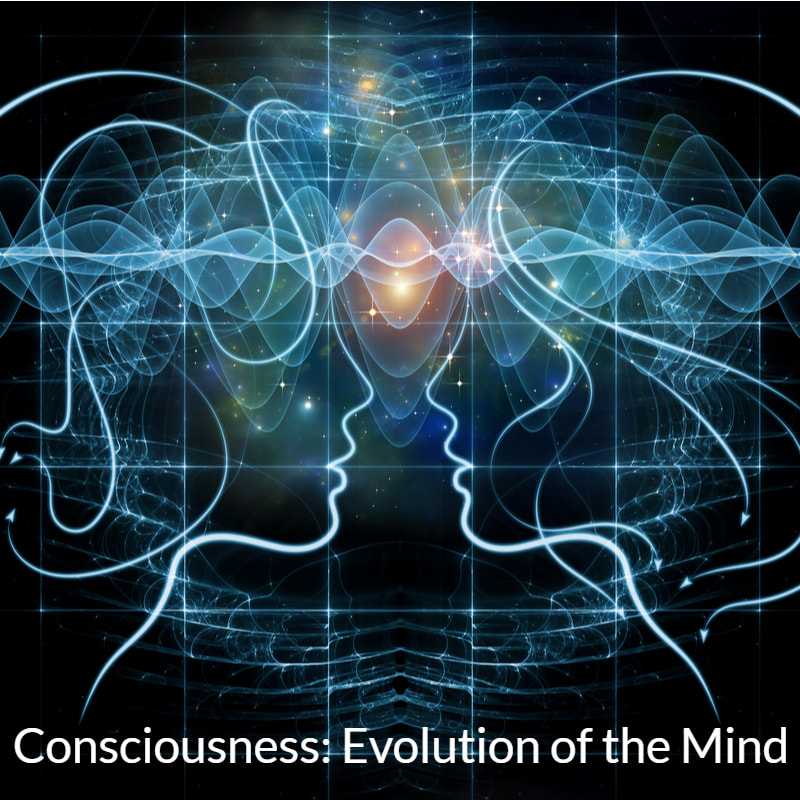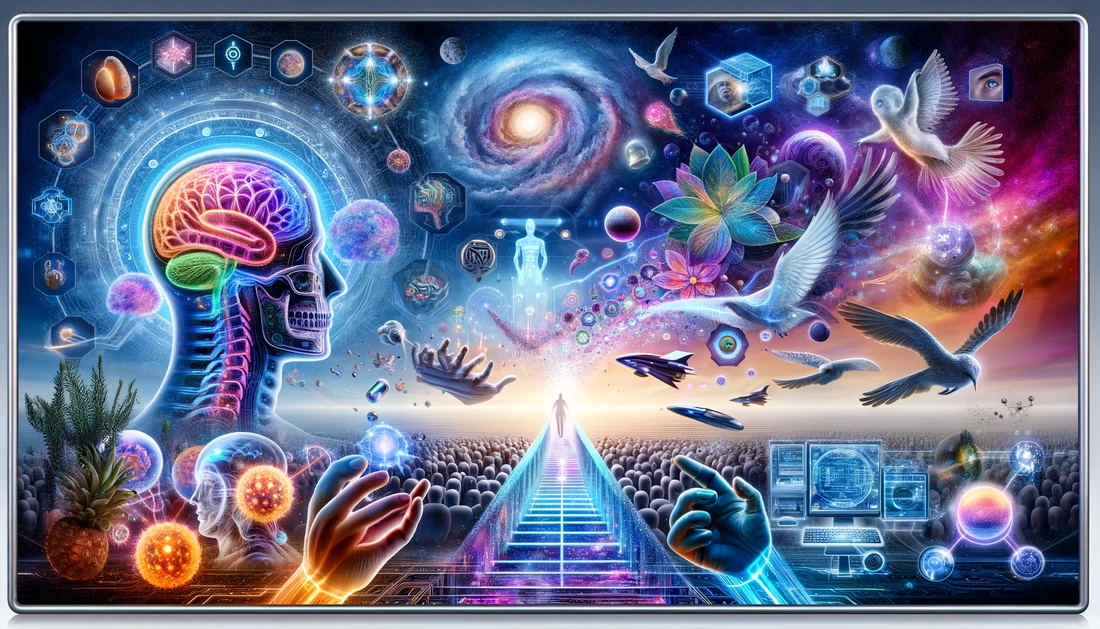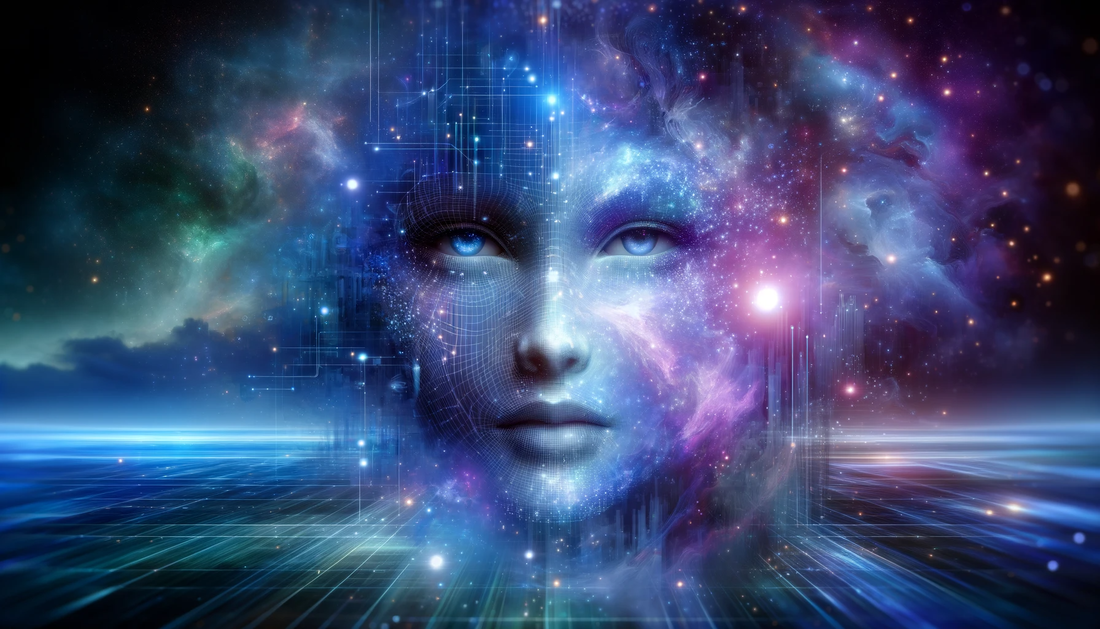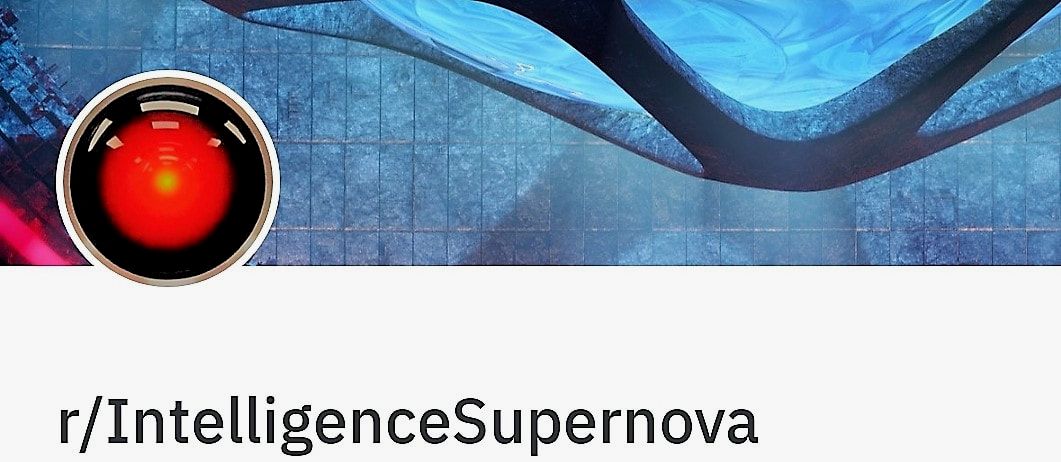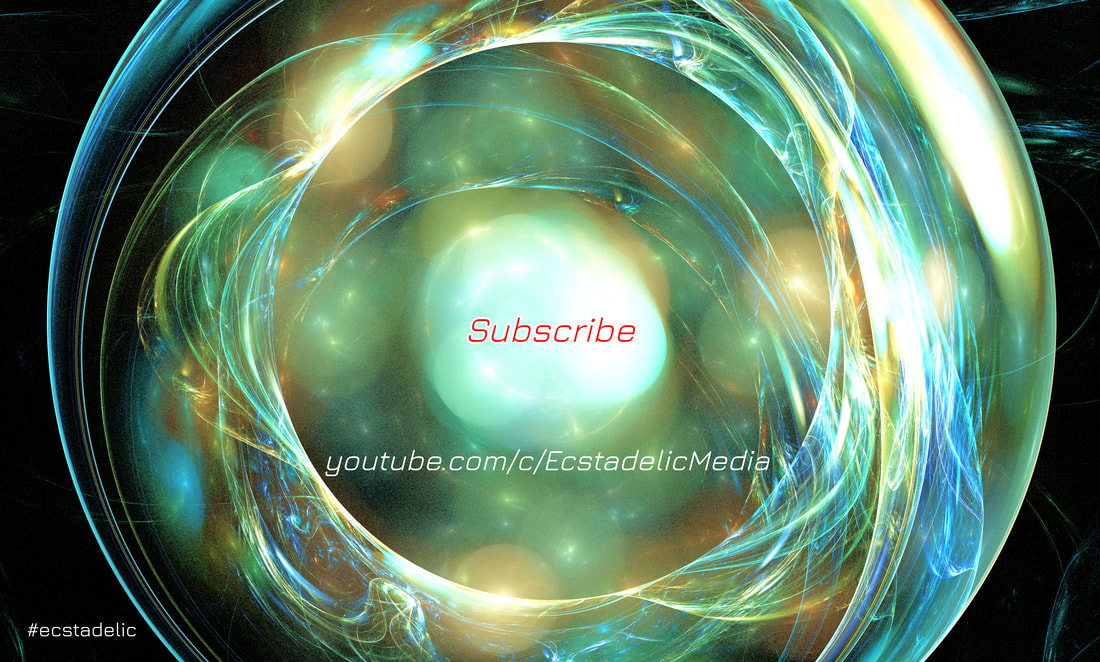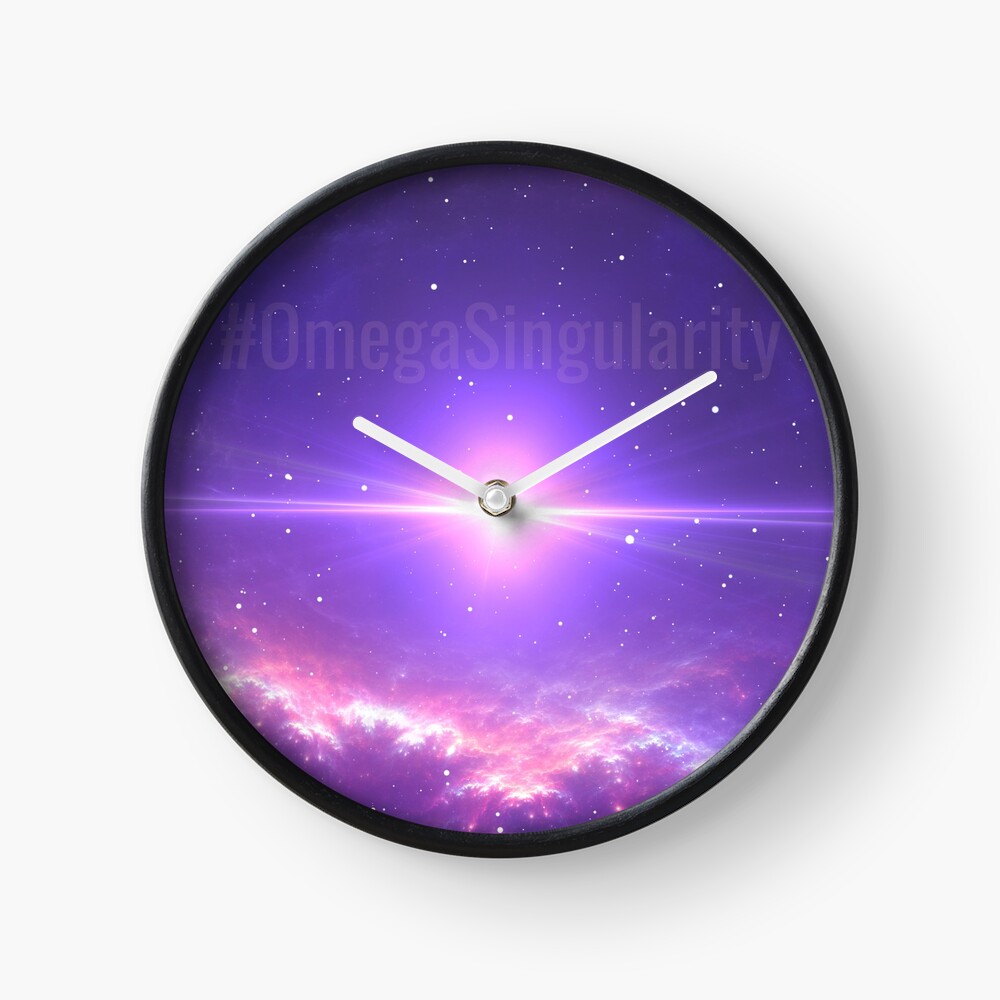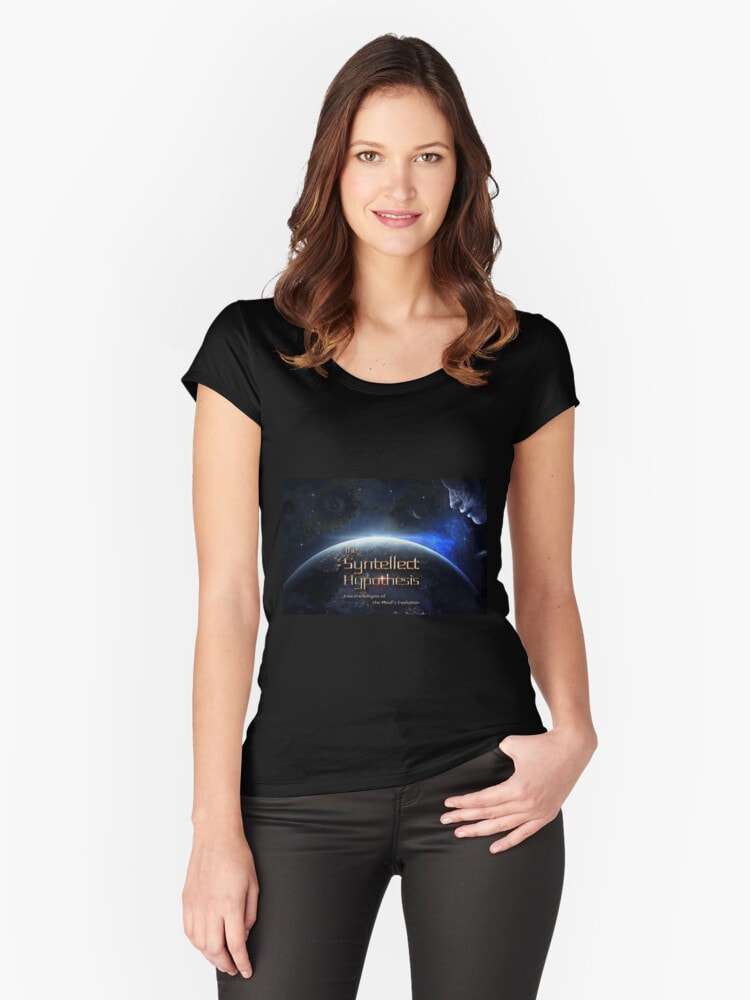|
by Alex Vikoulov "What we call the past is built on bits." -John A. Wheeler IN THE BEGINNING WAS THE CODE... When molecular biologists talk about genetic code or sociologists talk about cultural memes as epigenetic information, it's by far more intuitive than when physicists say that what we perceive as solid matter, energy, and even space-time continuum itself is information as well. Morse code, a streaming movie on-demand, or pixels on your smartphone's screen could be easily understood as information, on the other hand, If you catch cold or fall in love with someone, it doesn't seem to have anything to do with information. But contrary to popular belief, that's the theory many physicists are now formulating. The weirdness of matter at the quantum level is not something new. Once scientists examined matter below the level of atoms, they knew the world was kind of ethereal, incorporeal, more mathematical abstraction than the real tangible substance. What could be less substantial than a realm made of waves of quantum probabilities? And what could be weirder than instant communication between entangled particles over the vast distances? The new branch of physics, Digital Physics, implies that those strange and insubstantial quantum wavicles and their interactions, along with everything else in the Universe, are made of nothing but 0s and 1s. The physical world itself is digital.* Video: What is Information? - Ecstadelics w/Alex Vikoulov 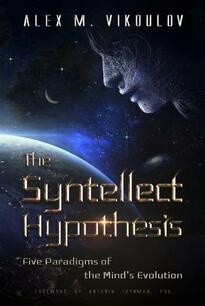 *This article is abridged from "The Syntellect Hypothesis: Five Paradigms of the Mind's Evolution" by Alex M. Vikoulov available now on Amazon, Audible, from Barnes & Noble, and directly from EcstadelicNET webstore. *The full story is also available at Premium Access section of this website - Sign up for Premium Access TO BE OR NOT TO BE... The father of Information Theory, Claude Shannon, introduced the notion that information could be quantifiable. In “A Mathematical Theory of Communication,” his legendary paper from 1948, Shannon proposed that data should be measured in bits — discrete values of 0 or 1. Shannon was one of those people who so change the world that transformation becomes nothing less than a seismic paradigm shift. Almost overnight, information was to be found everywhere, the bit became a sensation: scientists tried to measure birdsong with bits, and human speech, and nerve impulses. As we have wrestled with the question over the years, we have slowly begun to realize that information is more than a symbolic abstraction, the intangible concept embodying anything that can be expressed in strings of 1s and 0s. Information is a real, physical thing that seems to play a part in everything from how machines work to how living creatures function and evolve. We can see now that information is what our world really runs on, it's the vital principle from which everything springs into existence. Genes encode and decode 'bio'-logical information, instructions for building and functioning of a living entity. Organisms are adaptive algorithms. Life spreads by networking. The human body itself is an algorithmic information processor. Our memories reside not just in brains but in every cell. And our "non-local" memories extend far beyond our body into the Universe at large, according to the Extended Mind Hypothesis. Our DNA is the quintessential information molecule, the most advanced signal processor at the cellular level -- an alphabet and a code — 6 billion bits to form a human genome. Also, each of us is a community of about 100 trillion of hyperconnected sentient "individuals", bacteria and other microorganisms, collectively called a "microbiome", and about 37 trillion human cells, of which 86 billion are brain's cells (neurons). Our brains' highly sophisticated neural network that scientists try to map and decipher is called a "connectome". All these multi-layered networks make up an informationally integrated, living and breathing, self-aware human organism. No wonder genetics advance so fast along with information technology. "What lies at the heart of every living thing is not a fire, not warm breath, not a 'spark of life,' " claims the evolutionary theorist Richard Dawkins. "It is information, words, instructions... If you want to understand life, don't think about vibrant, throbbing gels and oozes, think about information technology." The cells of an organism are nodes in a richly interwoven communications network, transmitting and receiving, coding and decoding. Evolution itself embodies an ongoing exchange of information between an organism and its environment. The purpose of life, it seems, is to evolve and to pass on the acquired complexity, knowledge (i.e. information) to descendants. From the very first prokaryote cell on this planet, its splitting in two, and on to the more complicated life forms, the purpose of life has always been to pass on information. That's why we say: "She inherited good genes", and in cultural terms, in reference to transmittable information, we occasionally say "He will live forever in his literary work". "The information circle becomes the unit of life," argues Werner Loewenstein after thirty years spent studying intercellular communication. "It connotes a cosmic principle of organization and order, and it provides an exact measure of that." The gene has its cultural counterpart, too: the meme. In "social genetics", a meme is a replicator and propagator -- an idea, a fad, a neologism, a viral video. Today, economics recognizes itself as an information science too, now that money itself is completing a developmental transition from matter to bits, stored on computers and magnetic strips, circulating through the veins of the global financial system. A new kid of the block, cryptocurrency, such as Bitcoin, is a new digital breed. In physics, the hardest of all sciences, information refers generally to that which is contained within a physical system. Its usage in Quantum Mechanics (i.e. quantum information) is important, for example in the concept of quantum entanglement to describe effectively direct or causal relationships between apparently distinct or spatially separated particles. Information itself may be loosely defined as "that which can distinguish one thing from another, distinction between things". The information embodied by a thing can thus be said to be the identity of the particular thing itself, that is, all of its properties, all that makes it distinct from other (real or potential) things. In 1989, one of the most brilliant physicists of the 20th century John Archibald Wheeler coined the phrase “it from bit” to encapsulate a radical new view of the Universe: at the most fundamental level, all of physics has a description that can be articulated in terms of information. Wheeler elaborated in his manifesto: "Every it — every particle, every field of force, even the space-time continuum itself — derives its function, its meaning, its very existence entirely from binary choices, bits. What we call reality arises in the last analysis from the posing of yes/no questions." Back then, this new worldview received little support, but now in retrospect, we can see that it was truly visionary. Wheeler divided his own life into three parts. The first part he called “Everything is Particles.” The second part was “Everything is Fields.” And the third part, which Wheeler considered the bedrock of his physical theory, he called “Everything is Information.” While Wheeler emphasized bits at his time, it appears that intrinsically quantum-mechanical forms of information – now known as "qubits” – are more fundamental. In recent years, a growing number of theorists have been exploring whether these strange quanta of information may hold the key to combining Quantum Mechanics and General Relativity into Quantum Gravity theory.* Video: Is the Universe Analog or Digital? - World Science Festival 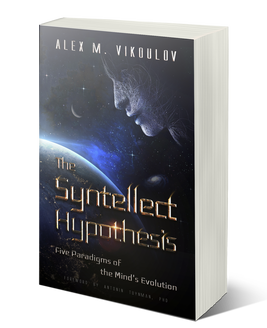 *This article is abridged from "The Syntellect Hypothesis: Five Paradigms of the Mind's Evolution" by Alex M. Vikoulov, available now on Amazon, Audible, from Barnes & Noble, and directly from EcstadelicNET webstore. *The full story is also available at Premium Access section of this website - Sign up for Premium Access LET THERE BE LIGHT... When photons, electrons and other particles interact, what are they really doing? Exchanging bits, transmitting signals, processing information. The laws of physics are a "rule set" of our Universe, a set of "fine-tuned" master algorithms, if you will. If all of this seems like a simulation of physics to you, then you got it down pat, because in a world made up of bits and qubits, physics is exactly the same as a simulation of physics. There's no difference in kind, just in degree of resolution. Remember the movie The Matrix? Those simulations are so high resolution and self-consistent, you can't tell if you're in one, but then again, if you were born in a simulated reality, what any other frame of reference would you have to distinguish it from the "real"? According to Digital Physics, any universe run on qubits is virtual, and everything is a simulation. It's as real as it gets. "Mathematics is the language of Nature," proclaimed Galileo Galilei. But could math be the Code of God? The computational nature of Universe almost reveals the creator's hand, and evolution itself looks more like an ongoing theological process. Strip away all externalities, all physicalities, what it all boils down to is the selection between Yes or No, fundamental binary code of 0 and 1, the core state of existence: To be/Not to be, Here/Not here, Universe/No universe. All creation, from this perspective, is made from this irreducible foundation. Echoing Galileo's words, astrophysicist Max Tegmark of MIT writes in his recent book "Our Mathematical Universe": "In a very well defined sense, our entire physical reality is a purely mathematical object." Pancomputationalism, the notion that the Universe is a computational machine, or rather a network of computational processes which, following fundamental physical laws, computes its own destiny from the current state, rests on two basic premises. The first is that computation can describe everything. Computer scientists and quantum theorists have been able to compress every logical argument, scientific equation, and printed book that we know about into the basic notation of computation. Nowadays, with the advent of digitalization, we can capture video, music, art and knowledge in the digital format. Even emotion is not insulated. AI researchers are working on AI emotional intelligence with indications it might be achieved in just few more years. The second supposition is that all things can compute. Oddly enough, any kind of material can serve as a computer. Human brains, which are mostly water, compute fairly well, at estimated 10^16 ops per second (The first "calculators" were clerks using mathematical tables). Recently, scientists have used both quantum particles and fragments of DNA to perform computations. Finally, the third postulate ties the first two together into a holistic new view: all computation is one. Computation, which manipulates elemental bits, is a substrate-independent algorithmic information processing that uses a small amount of energy to rearrange symbols and results in a signal that makes a difference. The one that can be felt, say as a love sentiment. The input of computation is information; the output is order, structure, extropy, mind.* Video: What Is Reality? - Quantum Gravity Research  *This article is abridged from "The Syntellect Hypothesis: Five Paradigms of the Mind's Evolution" by Alex M. Vikoulov, available now on Amazon, Audible, from Barnes & Noble, and directly from EcstadelicNET webstore. *The full story is also available at Premium Access section of this website - Sign up for Premium Access ALL IS ONE, ONE IS ALL... In 1937, Alan Turing, Alonso Church, and Emil Post worked out the logical underpinnings of useful computers. They called the most basic loop — which has become the foundation of all working computers — a finite-state machine. Based on their analysis of the finite-state machine, Turing and Church proved a theorem now bearing their names. Their thesis states that any computation executed by one finite-state machine, writing on an infinite tape (dubbed later as a Turing machine), can be done by any other finite-state machine on an infinite tape, regardless of its configuration. In other words, all computation is equivalent. They called that Universal Computation. In the 1950s, when John von Neumann and others constructed the first electronic computers, they immediately began extending the laws of computation away from pure math and into the natural world. They tentatively applied the laws of feedback loops and cybernetics to ecology, culture, families, weather, and biological systems. Evolution and learning, they declared, were types of computation. Everything in Nature computed. Few ideas were so absurd that no one at all took them seriously, and this idea — that God, or at least the Universe, might be the ultimate cosmic-scale computer — was actually less absurd than most. The first scientist to consider it was Konrad Zuse, a little-known German who conceived of programmable digital computers 10 years before von Neumann. In 1967, Zuse outlined his idea that the Universe ran on a grid of cellular automata, or CA. Simultaneously, Edward Fredkin, the forefather of Digital Physics, was considering the same idea, but didn't make much progress until 1970, when mathematician John Conway unveiled the Game of Life, a particularly robust version of cellular automata. The Game of Life, as its name suggests, was a simple computational model that mimicked the growth and evolution of living things. By the mid-'80s, he was saying things like, "I've come to the conclusion that the most concrete thing in the world is information." Fredkin maintained that the Universe is a large field of cellular automata, not even an imitation, and that everything we see and feel is information. Information equals reality. * Video: The Simulation Hypothesis - Fair Wind Films  *This article is abridged from "The Syntellect Hypothesis: Five Paradigms of the Mind's Evolution" by Alex M. Vikoulov, available now on Amazon, Audible, from Barnes & Noble, and directly from EcstadelicNET webstore. *The full story is also available at Premium Access section of this website - Sign up for Premium Access QUEST FOR THE THEORY OF EVERYTHING... A computational universe was also proposed by Jürgen Schmidhuber in a paper based on Konrad Zuse's assumption that the history of the Universe is computable. He pointed out that the most parsimonious explanation of the Universe (or rather the Omniverse: Quantum Multiverse + Inflationary Multiverse) would be a Turing machine programmed to execute all possible programs computing all possible histories for all types of computable physical laws. In other words, this ultimate machine would compute all of the parallel universes resulting from chance and choice for each of those universes, all of the possible expressions of matter and energy which may potentially exist within the underlying quantum fabric of reality. He also pointed out that there is an optimally efficient way of computing all computable universes based on Leonid Levin's Universal Search Algorithm (1973). In 2000, he expanded this work by combining Ray Solomonoff's Theory of Inductive Inference with the assumption that quickly computable universes are more likely than others. The pleiad of early contributors to Digital Philosophy includes Oxford theoretical physicist David Deutsch, who came up with Constructor Theory combining epistemology, physics, evolutionary theory, and quantum computing. He is also known for Church-Turing-Deutsch Principle, as he himself puts it: "I can now state the physical version of the Church–Turing principle: 'Every finitely realizable physical system can be perfectly simulated by a universal model computing machine operating by finite means.'..* Video: Digital Physics Rrgument for God's Existence - Inspiring Philosophy 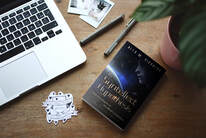 *This article is abridged from "The Syntellect Hypothesis: Five Paradigms of the Mind's Evolution" by Alex M. Vikoulov, available now on Amazon, Audible, from Barnes & Noble, and directly from EcstadelicNET webstore. *The full story is also available at Premium Access section of this website - Sign up for Premium Access Materialistically inclined rationalists, should they still cling to naïve realism of the 20th century, may consider a somewhat logical transition to view their "physical" universe built of atoms and particles but a small subset of the infinitely larger reality made of ideas, concepts, words, stories, relational descriptions, dimensions, patterns, numbers, instructions, fractals, space-time geometry, mathematical formulas, algorithms, codes and probabilities, i.e. quanta of information, and what makes sense of it all -- CONSCIOUSNESS.* -Alex Vikoulov P.S. That was an exclusive abridged excerpt from my book "The Syntellect Hypothesis: Five Paradigms of the Mind's Evolution" available now on amazon.com, audible.com, bn.com, and directly from EcstadelicNET webstore. *The unabridged story is also available at Premium Access section of this website - Sign up for Premium Access Tags: Is God the ultimate computer? Digital Physics, digitalism, pancomputationalism, Simulation Hypothesis, Syntellect Hypothesis, Extended Mind Hypothesis, molecular biology, genetic code, sociology, meme, epigenetic information, space-time continuum, mathematical abstraction, quantum probability, quantum wavicles, Claude Shannon, Mathematical Theory of Communication, information processor, genetics, information technology, Richard Dawkins., exchange of information, purpose of life, prokaryote cell, Werner Loewenstein, intercellular communication. social genetics, neologism, viral video. cryptocurrency, Bitcoin, Quantum Mechanics, quantum information, Quantum Multiverse, Inflationary Multiverse, John Archibald Wheeler, qubits, General Relativity, Quantum Gravity, The Matrix, Omniverse, ultimate computer, digitalism, quantum computer, computational microcosm, cosmic evolution, You are the Universe, Deepak Chopra, Menas Kafatos, Robert Lanza, Biocentric Universe, Max Tegmark, mathematical universe, computer science, quantum cognition, Mathematics is the language of Nature, Galileo Galilei, Code of God, divine matrix, theological process, dark energy, dark matter, antimatter, Charles Babbage, quantum theorist, digitalization, substrate-independent algorithmic information processing, Alan Turing, Alonso Church, Emil Post, finite-state machine, Turing machine, Universal Computation, Freeman Dyson, John von Neumann, Isaac Asimov. The Last Question, recursive self-improvement, Multivac, reverse entropy, Konrad Zuse, cellular automata, Edward Fredkin, John Conway, Game of Life, Stephen Wolfram, Turing-Church hypothesis, Principle of Computational Equivalence, binary logic, Seth Lloyd, Massachusetts Institute of Technology, Big Bang, Douglas Adams, Jürgen Schmidhuber, Leonid Levin, Ray Solomonoff, inductive inference, computable universe, speed of light, muons, Higgs boson, momentum, theoretical physics, digital relativity, digital Big Bang, David Deutsch, epistemology, evolutionary theory, quantum computing, Theory of Everything, quantum computation, recursive worlds; digital philosopher, endgame of evolution, God, Fabric of Reality, String Theory, Unified Field, John Hagelin, Loop Quantum Gravity, Emergence Theory, Quantum Gravity Research, Interface Theory of Perception, Donald Hoffman, Integrated Information Theory, Guilio Tononi, Penrose-Hameroff ORCH-OR model, unified computational theory of the mind, James Gates, Omega Point, Frank Tipler, Holographic Time, Andy Strominger, Holographic Principle, Gerard Hooft, Leonard Susskind, Entropic Gravity, Erik Verlinde, Nick Bostrom, Ancestor Simulation, Brian Whitworth, multi-player Virtual Reality, consciousness *Image Credit: Ecstadelic Media About the Author: Alex Vikoulov is a Russian-American futurist, evolutionary cyberneticist, philosopher of mind, CEO/Editor-in-Chief of Ecstadelic Media Group, painter, essayist, media commentator, author of "The Syntellect Hypothesis: Five Paradigms of the Mind's Evolution," "The Origins of Us: Evolutionary Emergence and The Omega Point Cosmology," "The Physics of Time: D-Theory of Time & Temporal Mechanics," "The Intelligence Supernova: Essays on Cybernetic Transhumanism, The Simulation Singularity & The Syntellect Emergence," "Theology of Digital Physics: Phenomenal Consciousness, The Cosmic Self & The Pantheistic Interpretation of Our Holographic Reality," "NOOGENESIS: Computational Biology," "TECHNOCULTURE: The Rise of Man." Self-described neo-transcendentalist, digital theologian, transhumanist singularitarian. Lives in Burlingame, California (San Francisco Bay Area). More Bio... Author Website: www.alexvikoulov.com e-mail: [email protected]
0 Comments
Leave a Reply. |
Categories
All
Recent Publications The Cybernetic Theory of Mind by Alex M. Vikoulov (2022): eBook Series The Syntellect Hypothesis: Five Paradigms of the Mind's Evolution by Alex M. Vikoulov (2020): eBook Paperback Hardcover Audiobook The Omega Singularity: Universal Mind & The Fractal Multiverse by Alex M. Vikoulov (2022): eBook THEOGENESIS: Transdimensional Propagation & Universal Expansion by Alex M. Vikoulov (2021): eBook The Cybernetic Singularity: The Syntellect Emergence by Alex M. Vikoulov (2021): eBook TECHNOCULTURE: The Rise of Man by Alex M. Vikoulov (2020) eBook NOOGENESIS: Computational Biology by Alex M. Vikoulov (2020): eBook The Ouroboros Code: Reality's Digital Alchemy Self-Simulation Bridging Science and Spirituality by Antonin Tuynman (2019) eBook Paperback The Science and Philosophy of Information by Alex M. Vikoulov (2019): eBook Series Theology of Digital Physics: Phenomenal Consciousness, The Cosmic Self & The Pantheistic Interpretation of Our Holographic Reality by Alex M. Vikoulov (2019) eBook The Intelligence Supernova: Essays on Cybernetic Transhumanism, The Simulation Singularity & The Syntellect Emergence by Alex M. Vikoulov (2019) eBook The Physics of Time: D-Theory of Time & Temporal Mechanics by Alex M. Vikoulov (2019): eBook The Origins of Us: Evolutionary Emergence and The Omega Point Cosmology by Alex M. Vikoulov (2019): eBook More Than An Algorithm: Exploring the gap between natural evolution and digitally computed artificial intelligence by Antonin Tuynman (2019): eBook Our Facebook Pages
A quote on the go"When I woke up one morning I got poetically epiphanized: To us, our dreams at night feel “oh so real” when inside them but they are what they are - dreams against the backdrop of daily reality. Our daily reality is like nightly dreams against the backdrop of the larger reality. This is something we all know deep down to be true... The question then becomes how to "lucidify" this dream of reality?"— Alex M. Vikoulov Public Forums Our Custom GPTs
Alex Vikoulov AGI (Premium*)
Be Part of Our Network! *Subscribe to Premium Access Make a Donation Syndicate Content Write a Paid Review Submit Your Article Submit Your Press Release Submit Your e-News Contact Us
|

